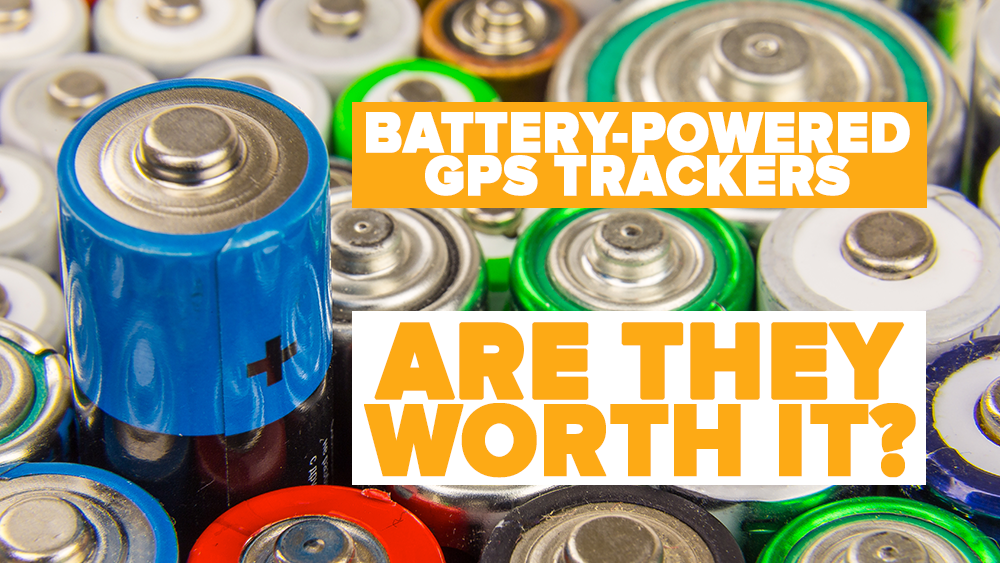Wireless has been around forever. If you’re a certain age, the concept may seem fairly new, but it was a full 20 years ago when Apple launched the wireless internet revolution with Wi-Fi on its iBook laptop. Twelve years ago, Bluetooth 2.0 was included in the inaugural iPhone (along with a whopping 16 GB of storage). Today cellular data is everywhere, and WI-FI hotspots are as ubiquitous as Starbucks and McDonald’s. Even wireless power — batteries — was first being developed way back in the 1800s. Now we see battery-powered GPS tracking devices being marketed to BHPH dealers as the next wave of “wireless innovation.”
You may ask yourself what took so long. Well, even though screen doors are wonderful for circulating air in your home without letting flies in, that doesn’t make them ideal on a submarine. Similarly, while the promise of a “wire-free” GPS tracking device may sound attractive for easy installations, it turns out there are some good reasons this technology hasn’t already gone mainstream.
Battery Life
One of the major reasons we traditionally wire in GPS devices is to draw power from the car battery, the same as other accessories. To eliminate this necessity, a self-powered device must be reliable or else a vehicle will end up equipped with a dead box transmitting zero location data.
The devices we’ve seen lately typically promise up to three full years of battery life. We obtained a handful of these devices to run through real-world rigors and see if they lived up to their promise. The test included four devices operating throughout the Midwest and Southeast over a three-month period (see Table 1).
We conducted under normal driving conditions in the middle of winter, installed in each vehicle per the included install instructions, and the devices remained on during the testing period. Blanks in Week 1 and 2 indicate the devices were not installed yet. Battery Life is measured in months according to the devices’ user interface while Events refer to the number of GPS calls remaining and used. All four vehicles were different and do not have any bearing on battery draw. Three of the four testers were located in a warm climate while one tester conducted the tests in a cold climate.
We found that, on average, these battery-powered devices lost 2.8 months of battery life in just one 30-day period. At this rate, testing indicates the average three-year device will run out of battery and rendered useless in less than just 13 months.
Cold weather also appeared to have an adverse effect on our test units. The device that operated mainly in Illinois (the coldest climate during the testing period) lost 4.1 months of battery life in the same 30 days — a 46 percent increase in battery consumption over the other three test devices.
These are severely disappointing results, borne of lofty expectations, to say the least.
Installation
Wire-free GPS providers claim their devices can be installed in less than 10 seconds. The premise is, place the unit under a seat or in a glove box, hit activate, and you’re done. However, customers have reported that these devices can’t send location data through obstructions such as the roof of a car or the base of a driver’s seat. Indeed, the fine print on these devices sometimes reads:
“Be sure the device has a good line of sight to the sky with no metal obstructions above it.”
The only way to ensure a device has a good line of sight with no metal obstructions is to install it under the vehicle dashboard or center console. And unfortunately, this requires an installer’s expert touch rather than quick-and-dirty jamming in of the unit.
Legal Exposure
Finally — and this is a biggie — we all know all the hoops we’re required to jump through to stay in compliance with state regulations regarding vehicle tracking. Specifically, we must be careful about the placement of “homing” devices on a vehicle without an owner’s permission.
Now, unlike tethered devices, wireless devices can be more easily relocated to other vehicles that a lien holder does not own or have permission to track. Further, what if a device is maliciously relocated to a commercial vehicle, bus, or another unsuspecting vehicle? Any of these scenarios could expose a well-intentioned, unsuspecting business owner to liability.[i] Nobody wants that. And imagine how long a dealer in this situation might end up tracking the wrong vehicle, including the productivity lost and bad data gained.
Always Do Your Homework
The old adage goes, “If it sounds too good to be true, it probably is.” In the case of battery-powered wire-free GPS devices, we advise unsuspecting dealers to be weary of oversimplified marketing claims. As with any new technology purchase, do not be afraid to ask questions, retain a healthy amount of skepticism (especially in regard to early adopter tech), and look to industry leaders to provide information and recommendations that have your long-term best interests in mind.
To learn more about the technology being used by the most successful dealers and lenders in the used car industry, developed by the No. 1 GPS provider, click here.
[i] Disclaimer: The statements made above are for informational purposes only and not for the purpose of providing legal advice. Contact your attorney to obtain advice with respect to any particular issue or problem.

